All of the Common Parenting Advice You Should Always Ignore
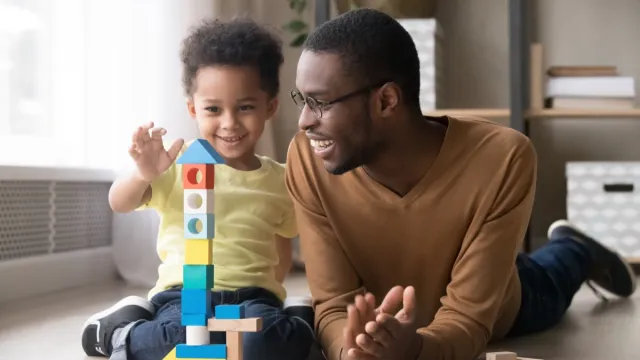
Whether you work or stay home, have one kid or five, being a parent is rarely what anyone would consider an easy job. The hours are long, the work is unpaid, and there’s no HR department to report to when the boss inevitably gets out of line at one point or another.
And unfortunately, one of the things that makes parenting even more difficult is sifting through the abundance of misinformation you’ll get from otherwise well-intentioned folks. From what to feed your kids to how to get the them to sleep to handling bullies, these are all the parenting tips you’d be better off ignoring.
1
“Treat each kid the same.”

Although it might seem “fair,” treating your kids exactly the same rarely works. According to certified mental health consultant and family care specialist Adina Mahalli of Maple Holistics, it’s more important to treat children as individuals and attend to them accordingly. And yes, that may mean spending tons of time with one kid while giving another more space. “Don’t be afraid to see each child for who they really are and what they really need,” suggests Mahalli.
2
“Only give kids dessert if they’ve finished their dinner first.”

Sure, you may not want your kid to live off of ice cream, but telling them they need to finish a whole meal to get dessert can lead to unhealthy eating habits over time. While it’s a parent’s job to decide what is served, “the child gets to decide if they eat it and how much,” says Jen O’Rourke, MFT, a parent educator and child psychotherapist based in Indiana.
That means that if you’ve decided to have dessert on any given night, O’Rourke says to “serve it regardless of if they ate ‘enough’ dinner. Dessert shouldn’t be a reward, it should be just a part of a dinner on occasion.”
3
“Only keep healthy food in the house.”
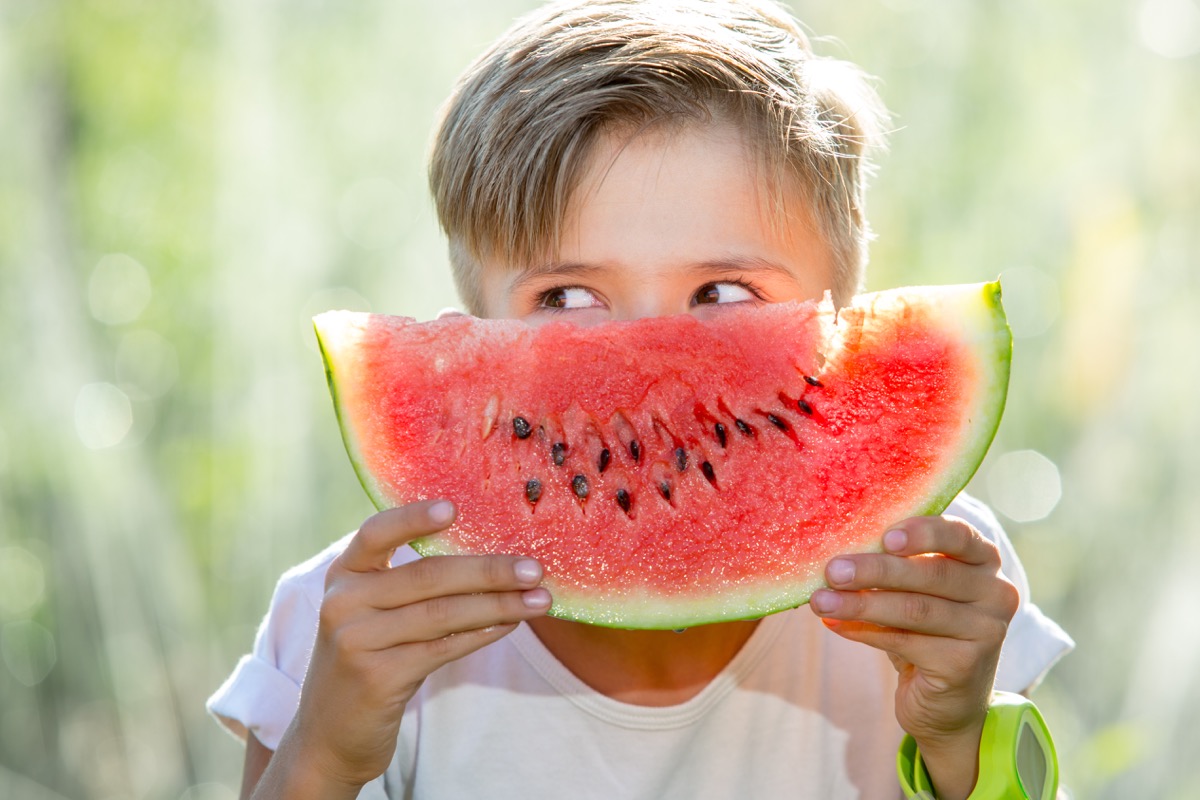
Of course, every parent wants their kids to be healthy eaters. However, if you make it seem like less-healthy foods can never be enjoyed, that can give them unintended illicit appeal. In exposing your children to treats every now and then, you’ll “remove the ‘forbidden fruit’ and make them less likely to sneak stuff,” says Mahalli.
4
“Always make your kids clean their plates.”
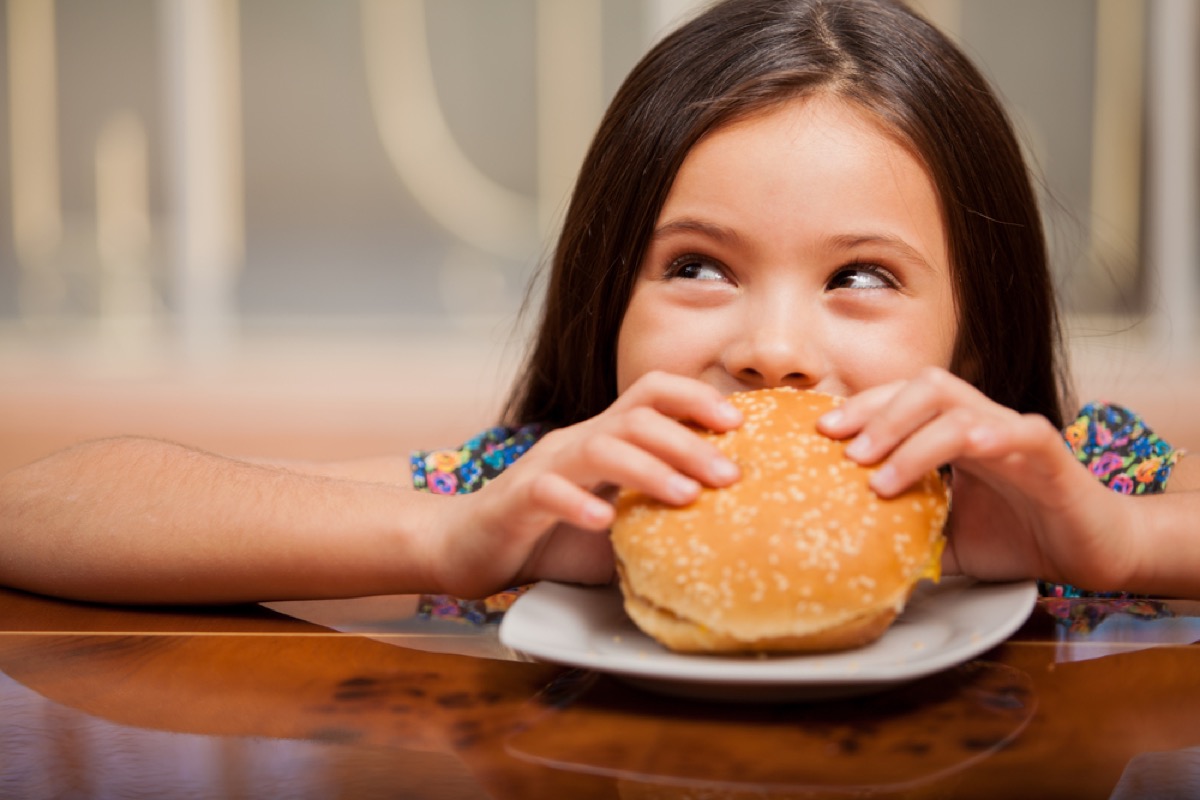
Though it may be frustrating to have a kid who routinely wastes food, forcing them to eat everything on their plate is no better for them in the long run. In order to teach children a healthy relationship with food, kids need “to learn to honor that full feeling,” says mental health therapist Carla Buck, MA, founder of Warrior Brain. “Feeling completely satisfied in life and after a meal is one of life’s smallest joys. Do not rob them of that with instructions to clear their plates even after they are full.”
5
“If your kid has a tantrum, just ignore it.”
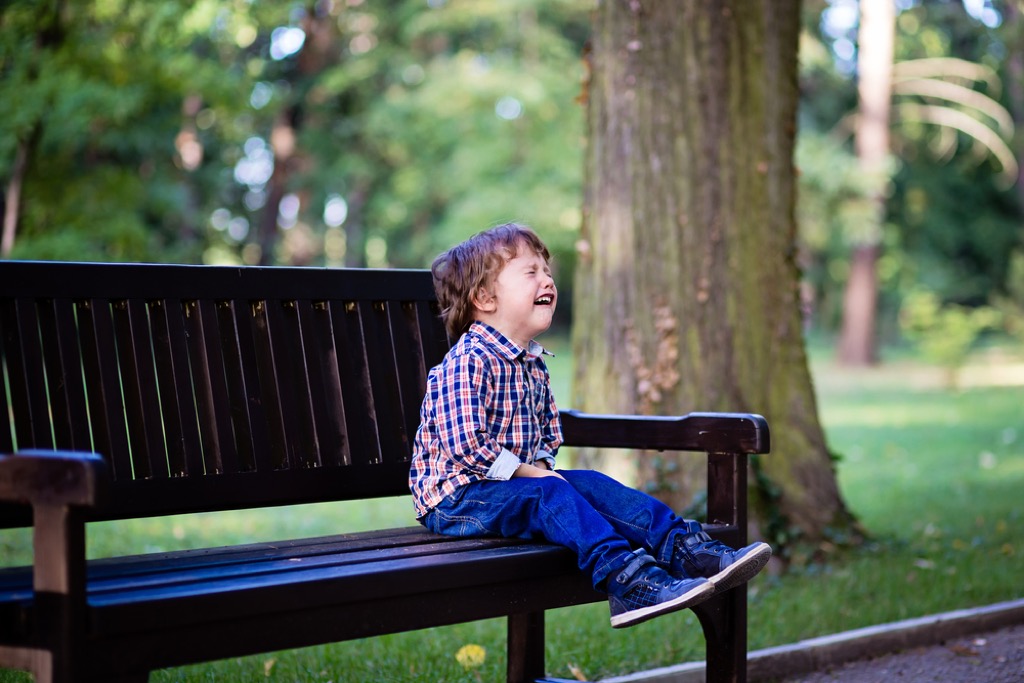
Kids aren’t great at emotional regulation—hence the crying, screaming, and kicking they tend to do when they’re tired, hungry, or upset. However, it’s not intentional manipulation. “A child having a tantrum is suffering and out of control,” says O’Rourke. She notes that parents “should not abandon a child who is still developing logic and reasoning skills.”
6
“Don’t attend to your baby every time they cry.”

Tempting to tune out your child’s crying can do more harm than good. “When children cry, they communicate any number of different messages—i.e.: pain, hunger, discomfort, fear, confusion, distress, sadness, excitement,” says Mayra Mendez, Ph.D., LMFT, a licensed psychotherapist and program coordinator for intellectual and developmental disabilities and mental health services at Providence Saint John’s Child and Family Development Center in Santa Monica, California. “A caregiver’s response to a crying child supports the building of trust in the relationship between caregiver and child.”
7
“Too much affection spoils a child.”
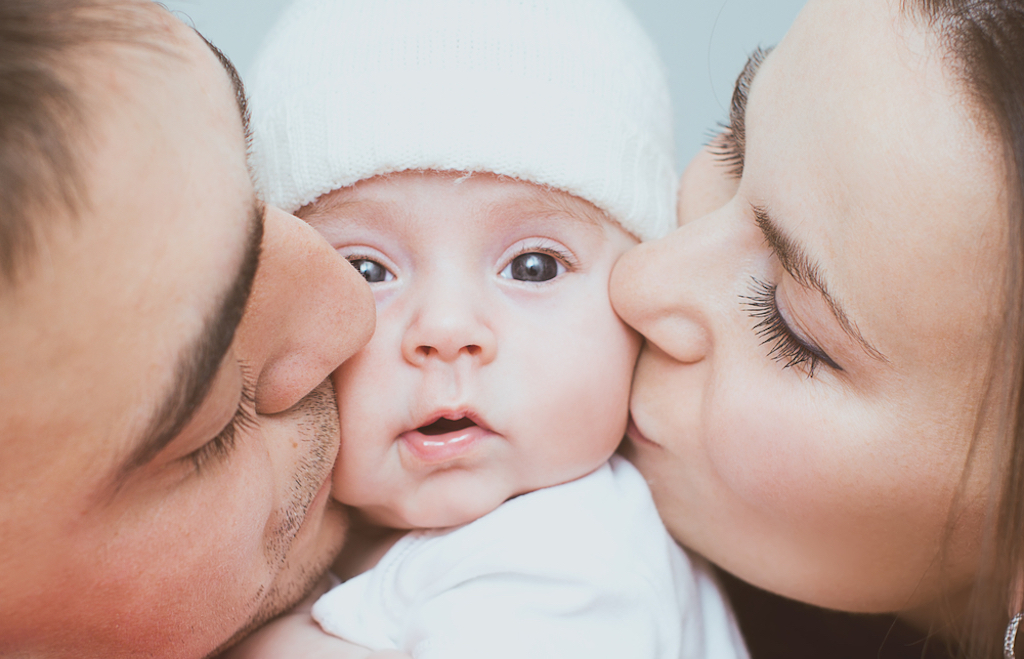
Want to hold and hug and coo at your baby all day long? Go for it—the idea that they’ll become spoiled by your affection is unfounded, according to scientist Samantha Radford, Ph.D., founder of Evidence-Based Mommy.
“Babies are biologically designed to be held and carried,” she says. “The kids who have the most separation anxiety aren’t the ones who are frequently held, but the ones who are told to tough it out.”
8
“Give your kids praise to boost their self-esteem.”

Praising every little thing your kid does can have some unintended consequences. “It’s counter-intuitive, but a constant stream of praise actually doesn’t help your child,” says Radford, who notes that a child may lose their intrinsic motivation if they get too much praise for everything they do. Instead, she suggests using neutral observations, like noticing how proud a child seems after accomplishing a goal.
9
“Make sure they have a strict routine—and stick to it!”

While sticking to a regimented routine may make things easier for parents, it’s not necessarily beneficial to kids in the long run. “A child with a strict routine will not know how to adapt,” says Buck. “They need to learn how to roll with the punches.”
10
“Always keep your kids busy or they’ll get into trouble.”
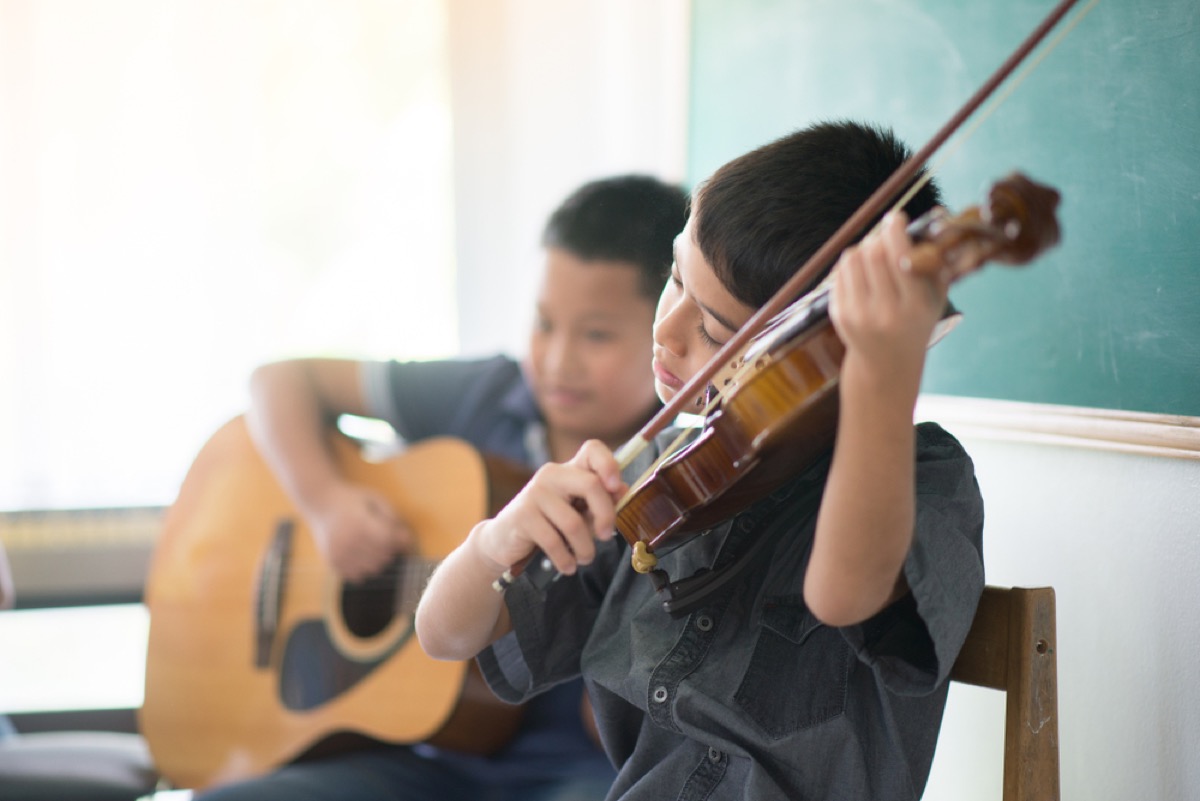
While having your kids unsupervised for long periods of time may prompt them to seek out some less-than-savory activities, over-scheduling them can be a problem, too.
“Far more important to children’s development, especially in the early years, is unstructured time for free play, on their own and with other children,” says therapist Raffi Bilek, LCSW-C, director of the Baltimore Therapy Center. “Play is essential for kids to develop the interpersonal and intrapersonal skills they need to thrive as adults.” In fact, a 2014 study published in the journal Frontiers in Psychology suggests that unstructured play leads to better self-control in the long run.
11
“Prepare them to fight back.”

Does your kid deserve to defend themselves if they’re in danger? Sure. Does that mean they need to throw a punch because someone is picking on them? Definitely not. “Teaching your [kid] to be strong and capable does not look like this,” says Buck.
Instead, teach them to use the appropriate channels—teachers, counselors, or parents—to make sure the situation doesn’t get out of hand, and help them understand that any kind of physical interaction is an absolute last resort, only to be used in the case of serious danger.
12
“Teach them to ignore their bullies.”

Despite what many parents have heard, the silent treatment isn’t the bully kryptonite one might hope it to be either. “Trying to ignore the bully is rarely successful,” says Bilek. His suggestion? “Help them identify the people in their school and personal circles who they can reach out to for help.”
13
“Spank your kids or they won’t learn to respect others.”
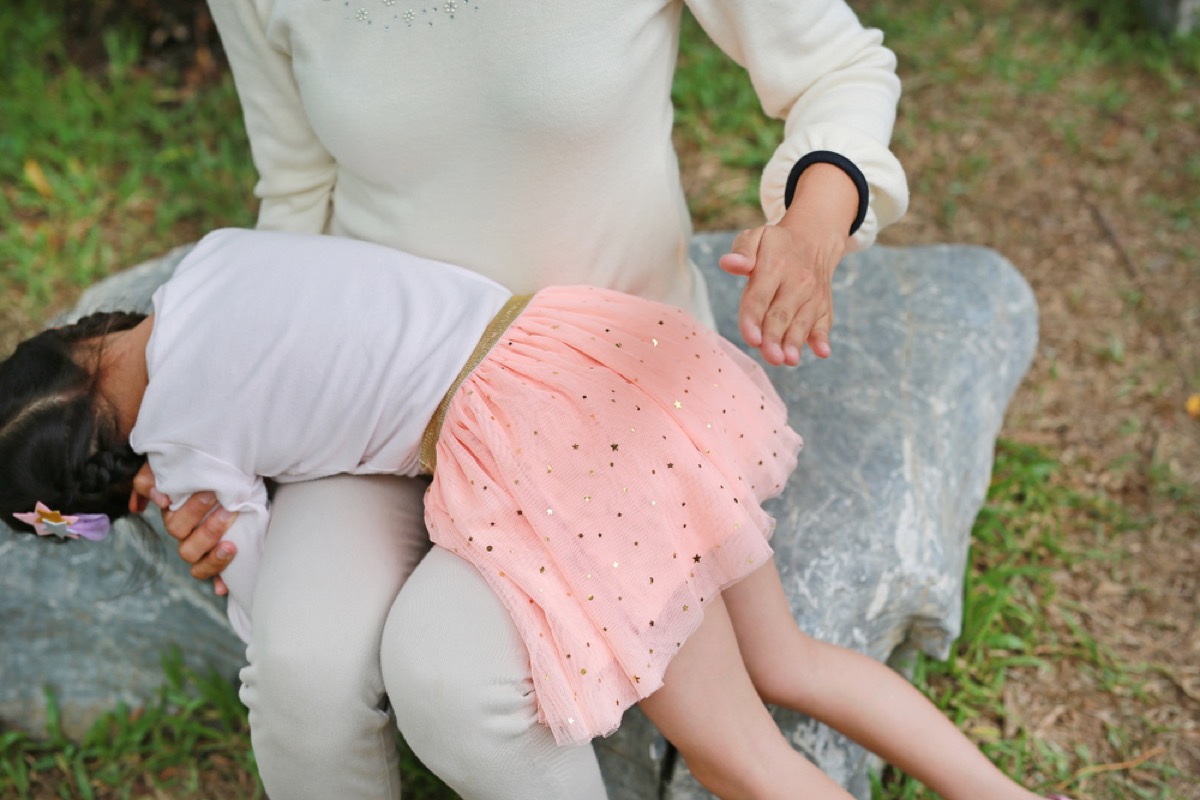
There are many ways to teach your kids respect, but spanking is not one of them. According to a 2017 study published in the journal Psychological Science, children who were spanked at age 5 had greater behavioral problems the following year and three years later than those who didn’t receive corporal punishment.
14
“When your child bites you, bite them back.”
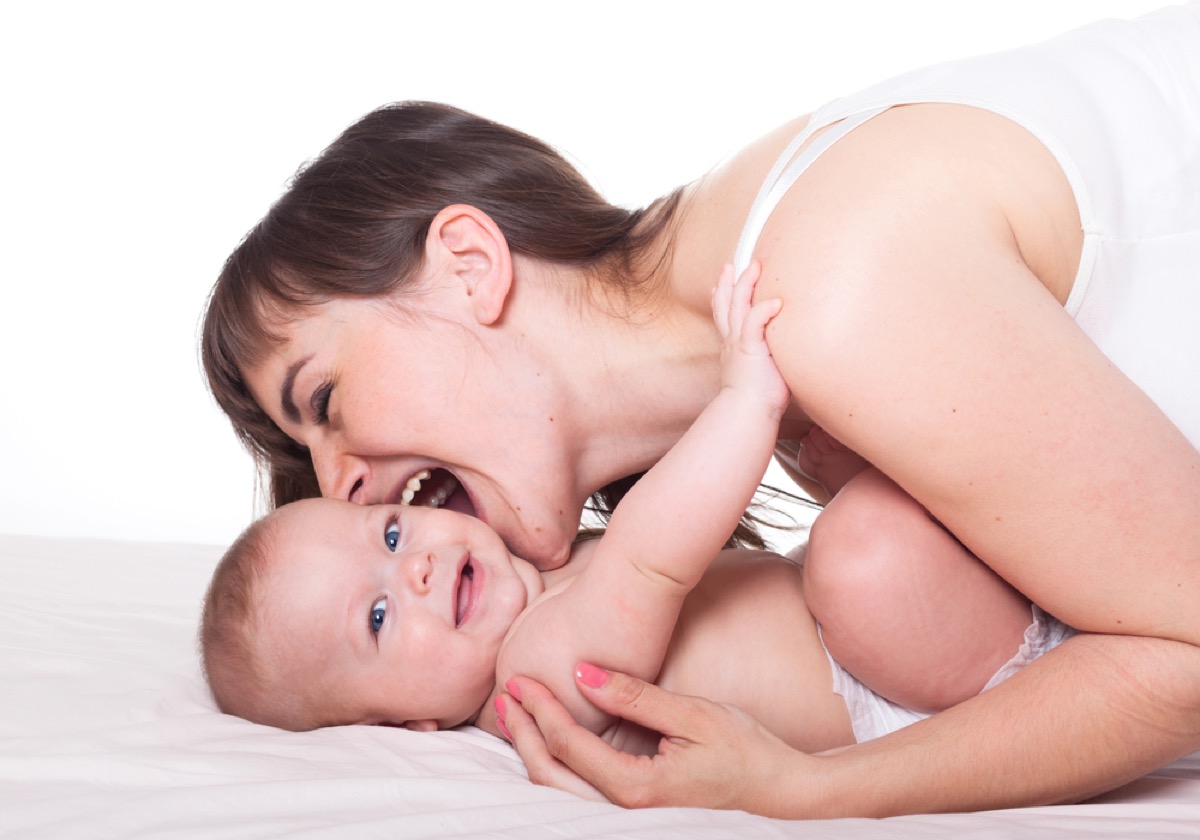
As strange as it may sound to some, many parents truly believe—and will repeat—that a child who bites should be bitten back to get a taste of their own medicine. The problem is that if you’re biting your kids, it’s pretty hard to convince them that doing so is wrong in the first place.
According to Buck, any type of “eye for an eye” approach to parenting—especially when it concerns potential physical harm to a child—is going to yield more problems than it solves.
15
“Don’t worry too much—it’s just a phase.”
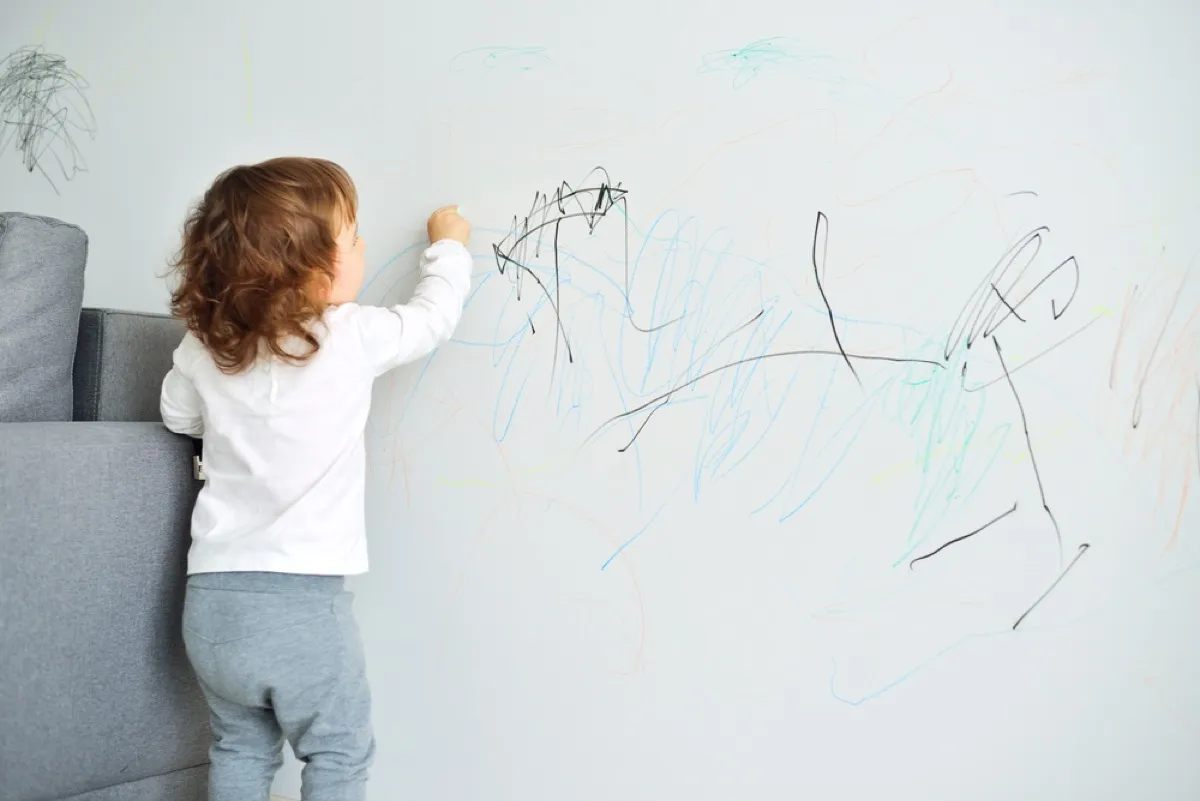
Will your kid eventually learn to stop drawing on the walls and start sleeping through the night? Sure, but that doesn’t mean every behavior is just a phase.
“A wait-and-see approach can be detrimental during critical learning periods,” says Mendez, who notes that when there are developmental concerns, early intervention is the best way to ensure that kids don’t fall too far behind. This way, if there is a developmental issue at play, the whole family can get the support they need.
16
“Put the baby to sleep however they’re comfortable.”
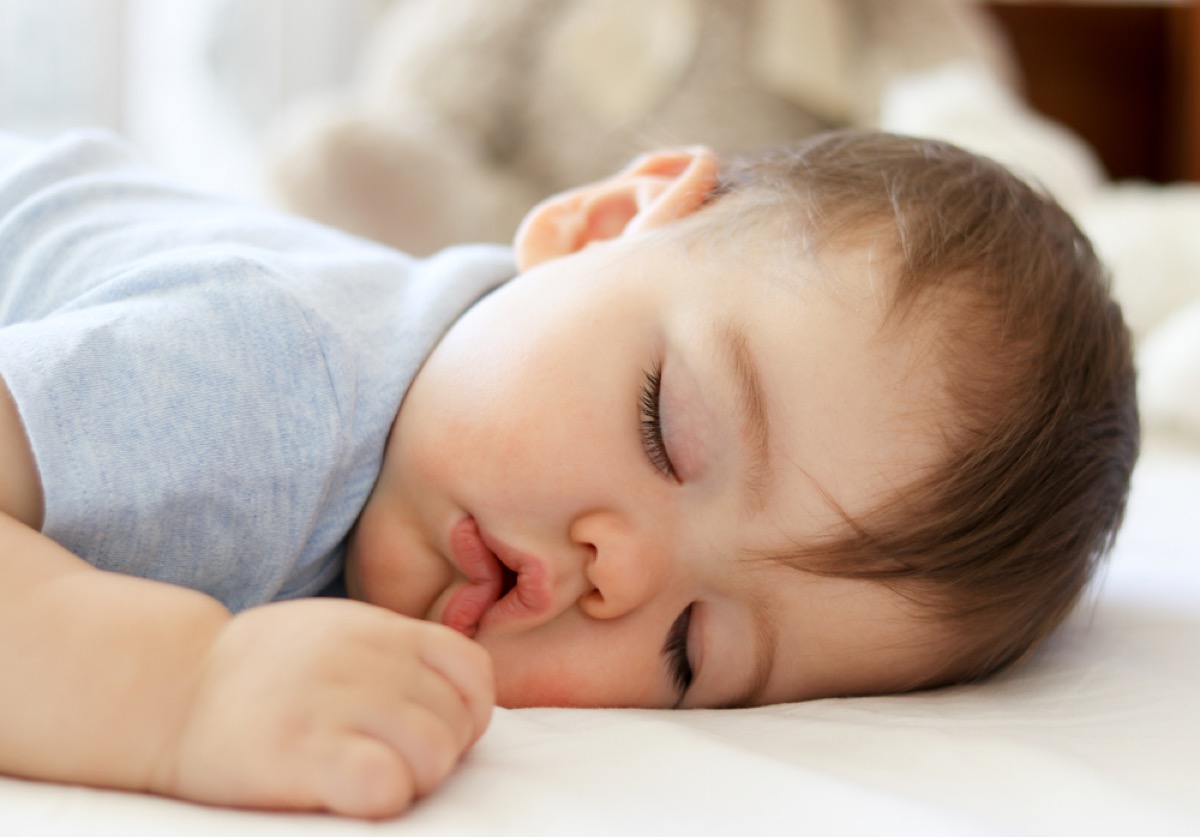
While your baby may have an easier time going to sleep on their stomach, putting them down that way could present a serious danger to their wellbeing. In fact, since the American Academy of Pediatrics implemented their “Back to Sleep” campaign in 1994, which encourages parents to put babies to sleep on their backs, SIDS deaths have been reduced by almost 50 percent, according to research published in the journal Pediatrics.
17
“Never wake a sleeping baby.”
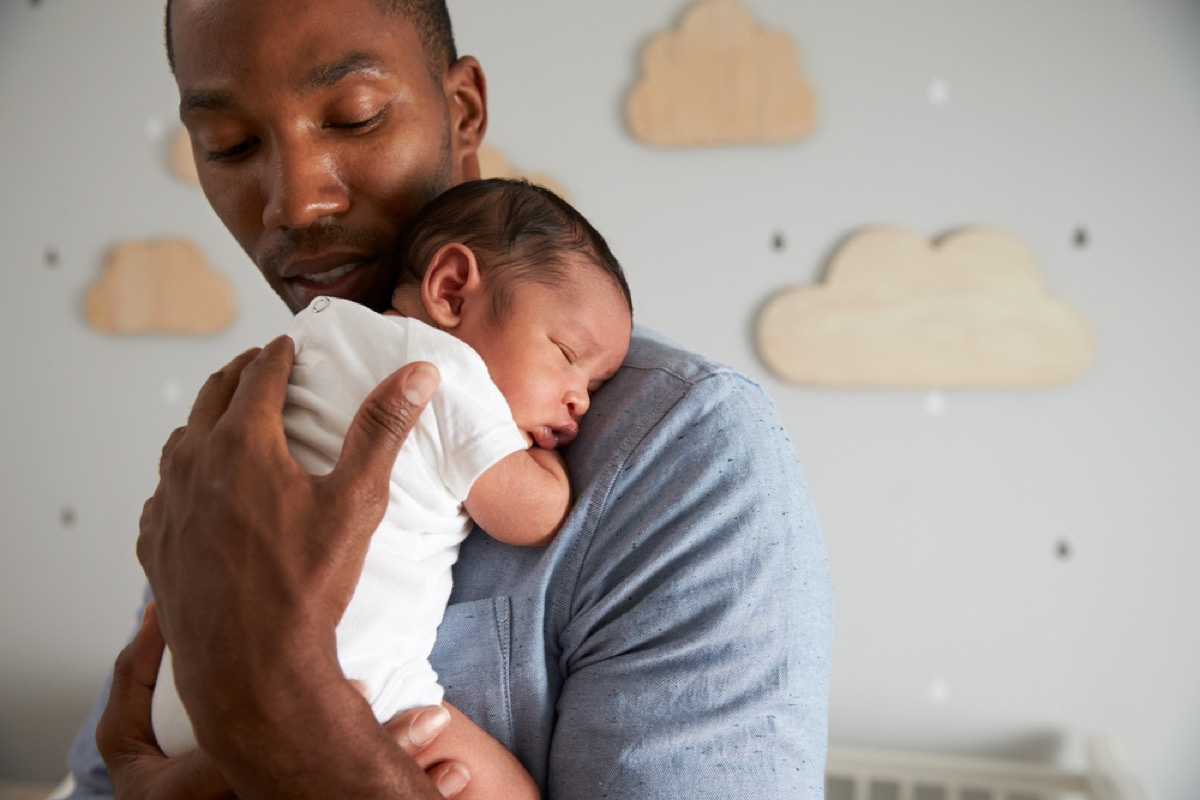
While you probably shouldn’t wake a baby who’s just gone down for a nap for the fun of it, this isn’t particularly sage advice during the newborn phase.
“Newborns who haven’t yet regained their birth weight, or those who might be at risk for jaundice, need to be fed every two to three hours during the first few days, and sometimes weeks,” explains Amanda Gorman, CPNP, founder and CEO of Nest Collaborative. “Allowing babies to sleep through feeds could result in feeding and growth issues that have serious health consequences.”
18
“Sleep when the baby sleeps.”

This seems like such a great idea—so much so that you’ll hear it repeated ad nauseam if you have a baby. The only problem is that babies are loud, sniffly, restless sleepers who will frequently nap for three hours in the afternoon and then only 20 minutes the next time they’re put down. So, unless you like your sleep in fits and starts—and enjoy going to bed for the night at 6 p.m.—this advice needn’t be heeded.
19
“Use whiskey to help with teething pain.”
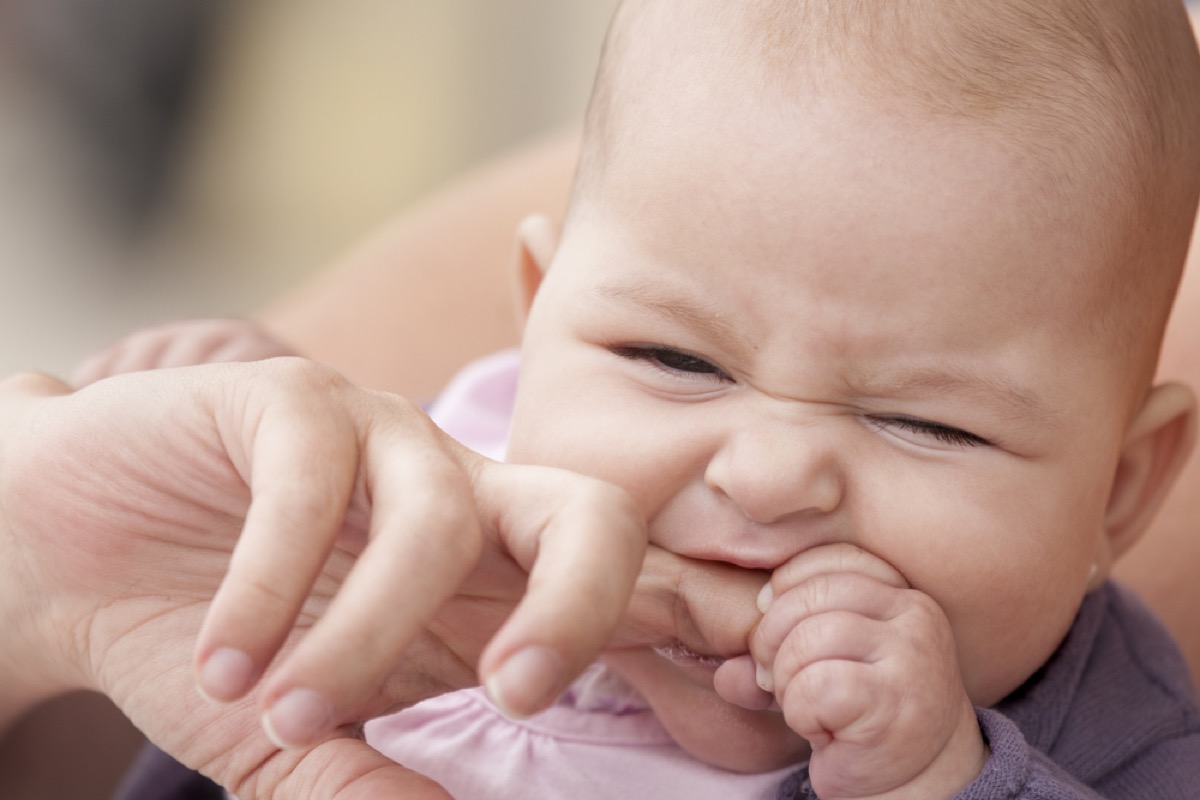
Though “don’t give children alcohol” might be an intuitive message to some folks, there are many others who still believe that whiskey is an appropriate cure for teething pain. While alcohol may have some analgesic properties, there are plenty of products out there that you can legally give to help your baby with their teething pain that don’t present the risk of serious physical harm.
20
“Breast is best.”
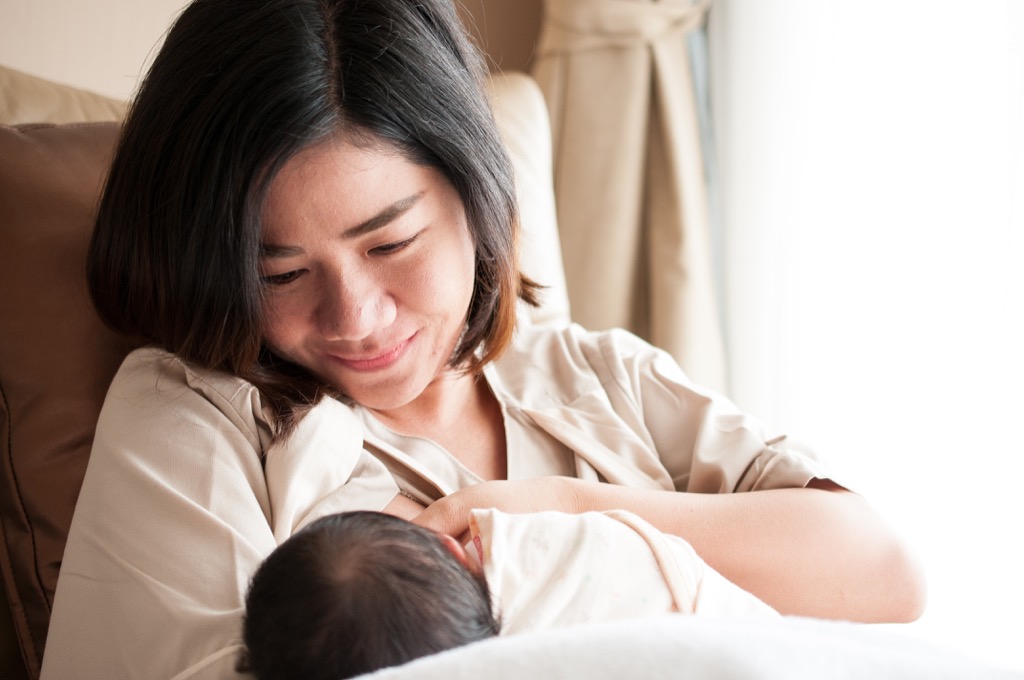
While there are plenty of benefits to breastfeeding, the “breast is best” mentality does little more than make parents who can’t—or choose not to—breastfeed feel like they’re somehow failing their kids. In fact, despite the widespread notion that breastfeeding is the key to raising a genius, a 2018 study published in PLOS Medicine indicates that, at 16, there’s no IQ difference between breastfed and formula-fed babies.
21
“Teach them about stranger danger.”
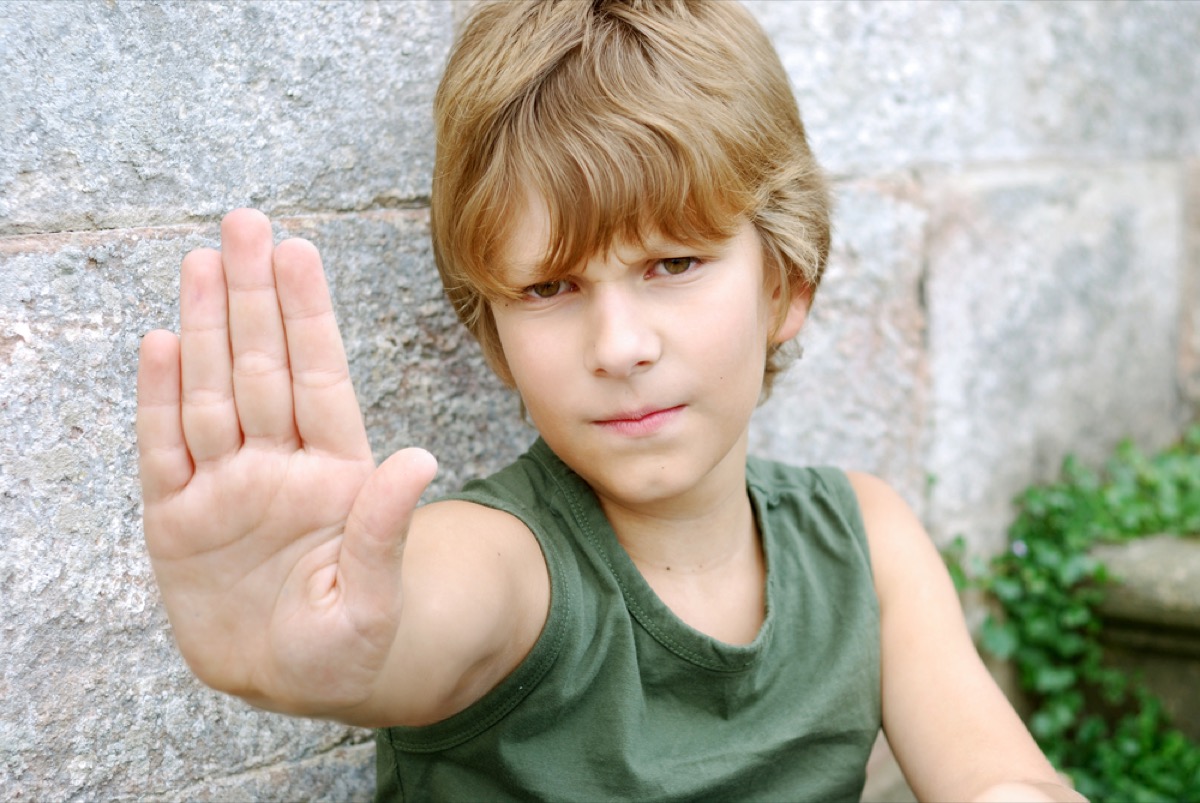
Obviously, you don’t want your kid to willingly walk off with anyone who promises them a piece of candy or a puppy. That said, the broad-strokes concept of “stranger danger” isn’t a helpful one, either. “Rather than teaching your child to fear people she doesn’t know, it’s far better to teach her from an early age how to use her intuition to assess whether a new person (or someone she knows, for that matter), feels and acts safe and trustworthy,” says personal security advocate CJ Scarlet, author of The Bad*** Girl’s Guide: Uncommon Strategies to Outwit Predators.
By teaching your children that they don’t have to fear all strangers, you also make it possible for them to seek appropriate help if they’re ever in a dangerous situation and don’t have an adult they know nearby.
22
“Boys will be boys.”

Assuming that your kids are destined to behave in specific ways due to their gender can set them up for more problems than you might expect. Reinforcing strict definitions of gender, like certain colors or activities belonging to boys or girls, creates “stereotypes and biases that are not conducive to respectful collaboration,” says Mendez.
Instead, promoting egalitarian gender values can help “instill in children the knowledge needed later in life to make choices and decisions that support their individual gender identification,” Mendez adds.
23
“Tell them it’s rude not to hug family members.”

Forcing children to hug people they don’t want to only makes it clear to them that they don’t get to say what goes when it comes to their bodies. Sure, grandma or grandpa may really want that hug, but “respecting boundaries and teaching consent means that children should never be forced to engage with anyone physically if they do not wish to,” says psychiatrist Dr. Lea Lis of Southampton, New York.
24
“Don’t teach your kids about sex until they’re ready to be sexually active.”
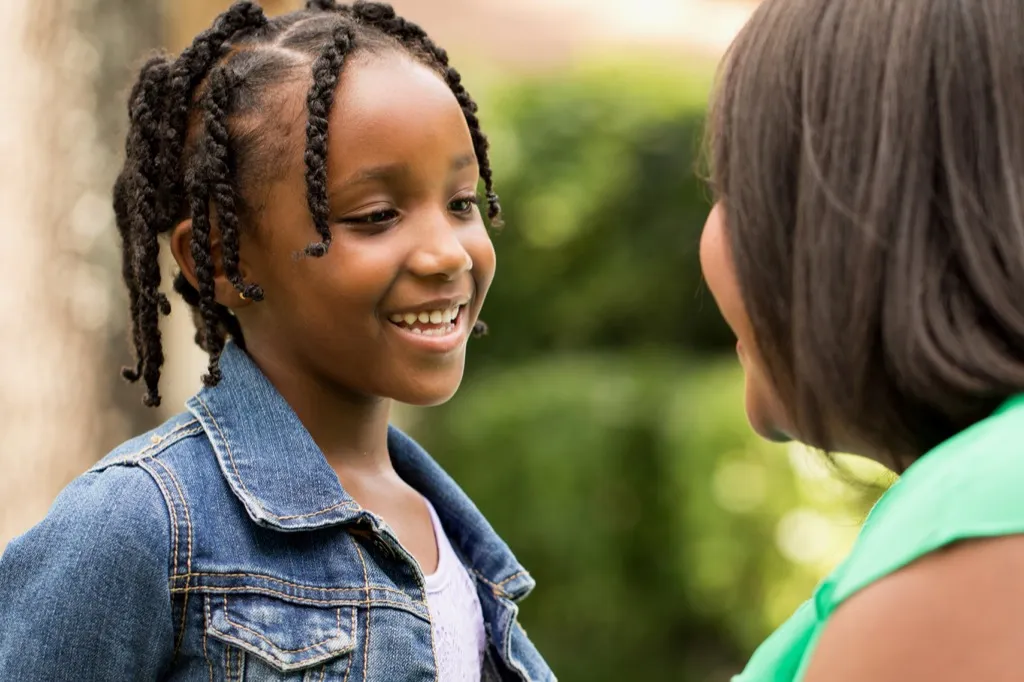
Teaching kids about sex isn’t going to make them sexually active—and in fact, teaching them those biology lessons at an early age can reduce the amount of shame associated with sexuality while helping them learn boundaries. Lis suggests introducing the concept of consent at a young age, and later adding topics like intimacy and STDs to the conversation.
25
“Stay together for the kids.”

Is a stable home beneficial for children? Absolutely. Does that mean they’re better off with two parents who are at each other’s throats than two happy single parents? Absolutely not. “Kids learn how to cope in life by watching you cope in life,” says Buck. According to her, the most important thing is a healthy home without chaos. And if you’re considering a split from your spouse, make sure you know these 33 Important Ways to Prepare Your Children for Divorce.
To discover more amazing secrets about living your best life, click here to follow us on Instagram!